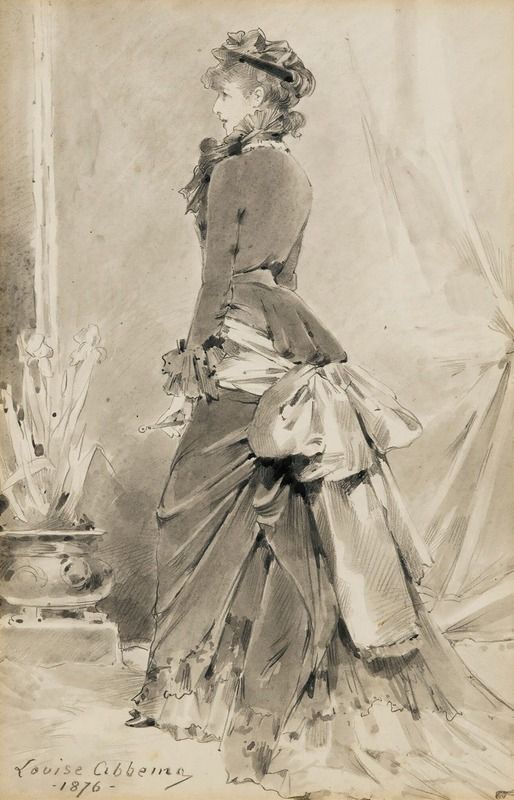A charming letter from Bon Augusz [1], containing a word from my father, who recounts that when Rubini was asked in Petersburg if he would sing at a concert of my father’s, he replied that he would even dance for Liszt, if he so desired, and thus, my father believes, he would be inclined to do anything for Wagner.
R. has various matters to attend to (accounts, concert, orchestra, circular for singers, etc.), while I attend to the outfitting of my two eldest, whom I shall now send to the convent upon my departure. The result of much reflection, painful realisation! …
In the evening, we converse with R. about certain French expressions, which are rendered so ridiculously in German, from which the entire sadness of former German circumstances can be discerned.
He searches for the word “Kidebarri” [“cul de Paris”] in “Kabale und Liebe”, but cannot find it. Instead, he reads to me the scene where the old Miller comes out of prison, and Luise is sitting in the corner. We are moved to tears. “When one thinks,” R. interrupts himself, “that the entire current generation mocks this.” – He laments that the intrigues in the play are so flawed.

Parisian with cul de Paris
Sarah Bernhardt in the fashion of the time (Louise de Abbéma, 1876).
As R. changes clothes, I hear him speaking from above on the spiral staircase: “Yes, my dear little wife, the slightest flaw prevents the impact of the greatest traits of genius —” Descending, I ask him with whom he was speaking: “As always, with you, and now also about “Kabale und Liebe”.” He recalls “Othello”, the powerful impression of the dream of Cassio, as told by Iago.
Later, R. walks out onto the balcony, and through the open door of Fidi’s room he hears the three eldest praying slowly and solemnly, as I have taught them, for all those dear to them, for the king, for all people. This moves him deeply and brings him much joy. We continue reading Gfrörer.
[1] Baron Augustz.
Revised English translation by Jo Cousins.
